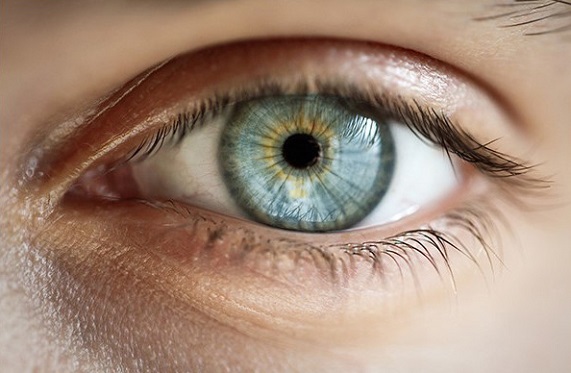The Phytochemical Paeoniflorin Found to Protect Eyes from Retinal Ischemia Damage
Nikhil Prasad Fact checked by:Thailand Medical News Team Nov 12, 2025 3 months, 2 days, 8 hours, 16 minutes ago
Medical News:
Ancient herbal compound shows promise in preventing vision loss
Retinal ischemia, a major cause of blindness linked to conditions like glaucoma, diabetic retinopathy, and macular degeneration, may soon have a new line of defense. Scientists from the University of British Columbia, Queen Elizabeth University Hospital (UK), Shin Kong Hospital (Taiwan), Taipei Veterans General Hospital, National Yang Ming Chiao Tung University, and China Medical University have discovered that paeoniflorin—a natural extract from the traditional Chinese herb Paeonia lactiflora—can protect and repair eye cells damaged by poor blood flow and oxidative stress. According to this
Medical News report, the findings mark an exciting advance in natural neuroprotective therapy for eye diseases that often lead to irreversible vision loss.
 Researchers reveal paeoniflorin’s potential to protect the retina and prevent ischemic vision loss
What is paeoniflorin
Researchers reveal paeoniflorin’s potential to protect the retina and prevent ischemic vision loss
What is paeoniflorin
Paeoniflorin is a monoterpene glycoside, a natural phytochemical compound found in plants of the Paeoniaceae family, particularly in the roots of the peony plant. It is the main active component extracted from Paeonia lactiflora and has been widely used in traditional Chinese, Korean, and Japanese medicine. Paeoniflorin is recognized for its broad pharmacological properties—anti-inflammatory, antioxidant, analgesic, cardiovascular-protective, and neuroprotective effects. Clinically, it has been utilized for managing cardiovascular diseases, liver disorders, autoimmune conditions, and neurological illnesses. Modern scientific research continues to explore its therapeutic potential as a natural and safe bioactive compound capable of supporting cellular resilience and protecting tissues from damage.
What causes retinal ischemia
Retinal ischemia happens when blood flow to the retina is restricted, depriving it of oxygen. This starves retinal cells—especially retinal ganglion cells (RGCs) and retinal pigment epithelial (RPE) cells—causing their death and leading to blurred or lost vision. Once damaged, these cells rarely regenerate. The study team used both cell cultures and rat models to mimic this condition and to test whether paeoniflorin could prevent or reduce such injury.
The experiment and how paeoniflorin worked
Researchers induced free-radical damage and oxygen-glucose deprivation in cultured retinal cells and then treated them with paeoniflorin. They found that a 0.5 millimolar concentration of the compound significantly improved cell survival in both RPE and RGC cells. In animal models where ischemia was triggered by temporarily raising eye pressure, paeoniflorin reduced cell death, restored retinal thickness, and improved electrical responses of the eye—key markers of visual function.
At the molecular level, paeoniflorin worked by lowering harmful proteins that drive inflammation and abnormal blood vessel growth in the retina. These include β-catenin, HIF-1α (hypoxia-inducible factor),
VEGF (vascular endothelial growth factor), and Angiopoietin-2. All of these are known to promote vascular leakage and tissue damage in conditions like diabetic retinopathy and macular degeneration. Remarkably, paeoniflorin’s effects were comparable to modern anti-VEGF drugs such as Avastin and to natural anti-angiogenic molecules like pigment epithelium-derived factor (PEDF).
A multi-targeted natural approach
Unlike conventional single-pathway drugs that focus on blocking only one molecular process, paeoniflorin acted on several fronts—reducing oxidative stress, inflammation, and abnormal blood vessel formation simultaneously. The compound mimicked the protective effect of established treatments but with the added advantage of antioxidant and neuroprotective actions. The researchers suggest that such multi-targeted effects could make paeoniflorin a useful complementary or alternative therapy for ischemic eye diseases, especially for patients who do not respond well to existing medications.
What the findings mean
This study reinforces the potential of plant-derived molecules in modern medicine. The ability of paeoniflorin to downregulate β-catenin, HIF-1α, VEGF, and Ang-2 biomarkers and to protect delicate retinal neurons opens new possibilities for treating or preventing blindness caused by ischemia. The scientists emphasize that further human clinical trials are needed, but the evidence strongly supports paeoniflorin as a safe and powerful natural compound capable of improving eye health. These results also underscore how traditional herbal medicine can intersect with modern molecular research to produce meaningful breakthroughs in chronic vision care.
The study findings were published in the peer reviewed International Journal of Molecular Sciences.
https://www.mdpi.com/1422-0067/26/22/10924
For the latest on Herbs and Phytochemicals, keep on logging to Thailand
Medical News.
Read Also:
https://www.thailandmedical.news/articles/herbs-and-phytochemicals
https://www.thailandmedical.news/articles/ophthalmology-(eye-diseases)
https://www.thailandmedical.news/articles/glaucoma-news
